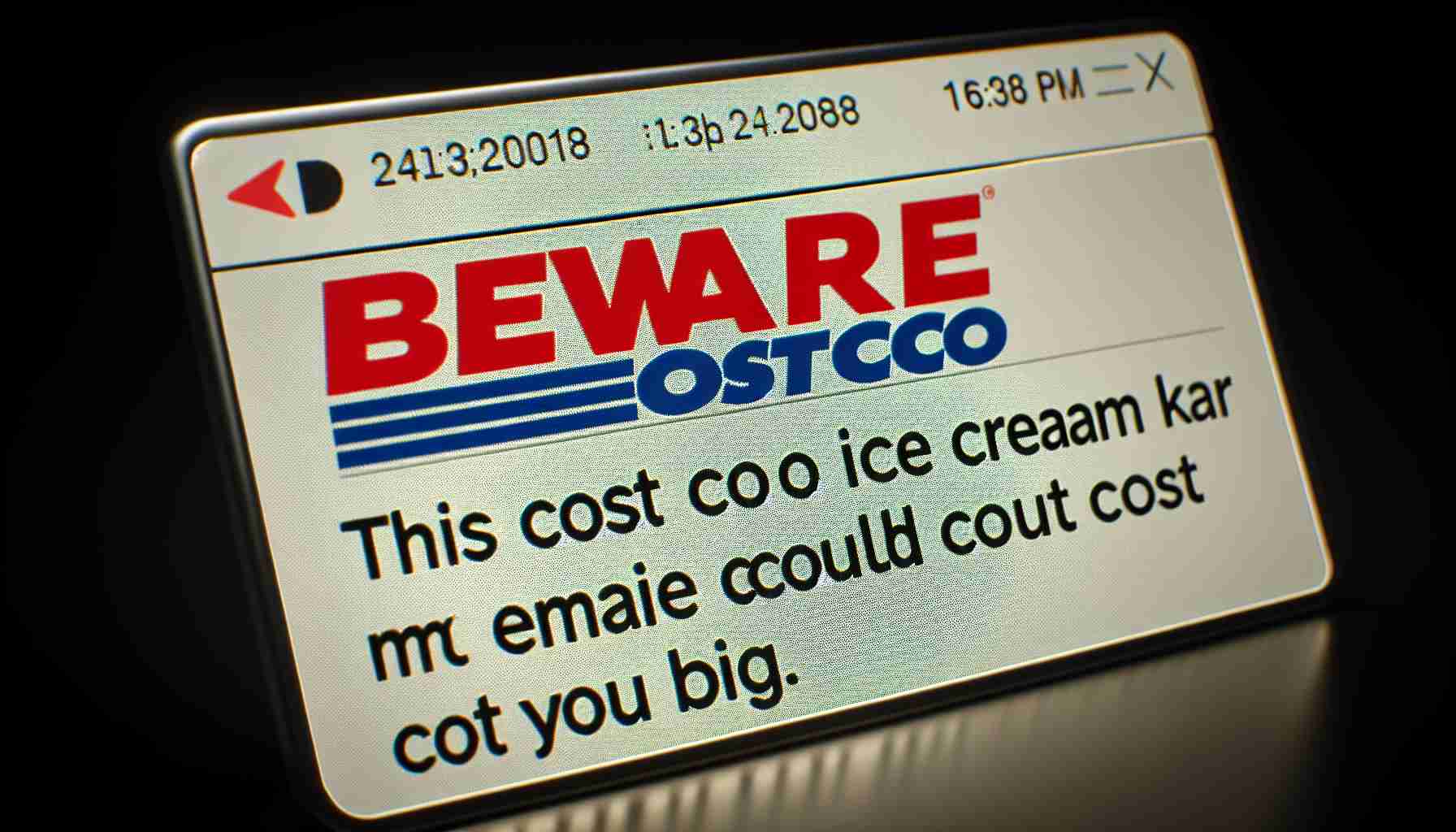- A phishing scam impersonates Costco, offering a free Ninja CREAMi Ice Cream Maker.
- The deceptive email originates from a suspicious domain: @handtoneed.net.
- Always verify the sender’s email address to avoid falling victim to scams.
- Scammers often create urgency, pressuring recipients to act quickly.
- Do not interact with suspicious links; report any phishing attempts to authorities.
- Be cautious of unsolicited offers that appear too good to be true.
Don’t be fooled! A nefarious phishing scam is masquerading as a generous offer from Costco, and it’s targeting unsuspecting customers. The Sonoma County District Attorney’s office has raised the alarm about a deceptive email that tantalizingly dangles a free Ninja CREAMi Ice Cream Maker in front of readers—if they complete a survey.
But don’t be deceived by the sweet deal! This email, which claims to be from Costco, is actually a cunning ruse designed to snatch away your personal and financial information. Instead of a trustworthy Costco address, the message is sneaking in from the suspicious domain of @handtoneed.net. This isn’t your usual bargain; it’s a recipe for disaster!
Officials emphasize the importance of scrutinizing the sender’s email address before interacting with any offers. Scammers are notorious for creating a false sense of urgency, often pressuring recipients with tight deadlines. To protect yourself, steer clear of any suspicious links and always report phishing attempts to local authorities.
The bottom line? Remain vigilant and skeptical of unsolicited offers, especially when they seem too good to be true. Your safety and security are far more valuable than any free gift. Stay informed, stay safe, and don’t let these scammers ice your day!
Don’t Fall for It: How to Spot Phishing Scams and Protect Your Information
Understanding Phishing Scams
Phishing scams, like the one posing as a free Ninja CREAMi Ice Cream Maker from Costco, are increasingly common. Cybercriminals often use enticing offers to lure victims into giving up their personal information. Here’s a deeper look at how to identify these scams and protect yourself.
New Insights into Phishing Scams
– Emerging Trends: Recent studies indicate a rise in sophisticated phishing attempts that utilize real company logos and branding to gain trust. These scams often mimic the look and feel of legitimate communications.
– Market Insights: The phishing scam industry has escalated, with phishing attempts increasing by over 50% in the past year alone, highlighting a worrying trend in cybersecurity.
– Security Innovations: New tools and browser extensions are in development to help users identify phishing threats automatically. Features like email verification and company logo recognition are being advanced to provide real-time alerts.
Essential Tips for Identification and Safety
1. Check the Email Address: Always verify the sending email address, especially if it seems off. Legitimate companies will use their official domains.
2. Look for Urgency: Scammers often use urgent language or limited time offers to pressure you into acting quickly without thinking.
3. Speak with Real Representatives: If receiving an unexpected offer, call the company directly using contact information from their official website to verify.
Frequently Asked Questions
What are some common signs of a phishing email?
Common signs include poor grammar, generic greetings, unexpected requests for personal information, and suspicious links. Always hover over any links to see the actual URL before clicking.
How can I report a phishing scam?
You can report phishing attempts to the Federal Trade Commission (FTC), your email provider, and local authorities. Check the official websites of companies mentioned to find their reporting procedures.
Are there tools that can help protect against phishing?
Yes, there are various security software options available that provide spam filtering and phishing protection. Browser extensions like HTTPS Everywhere and web filtering tools can enhance safety when browsing online.
Conclusion
In an increasingly digital world, remaining vigilant against phishing scams is crucial. By being informed about the latest trends and utilizing safety measures, you can better protect your personal and financial information.
For more information about online safety, you can visit FTC Consumer Information or Cyber.gov.au. Stay safe and informed!
